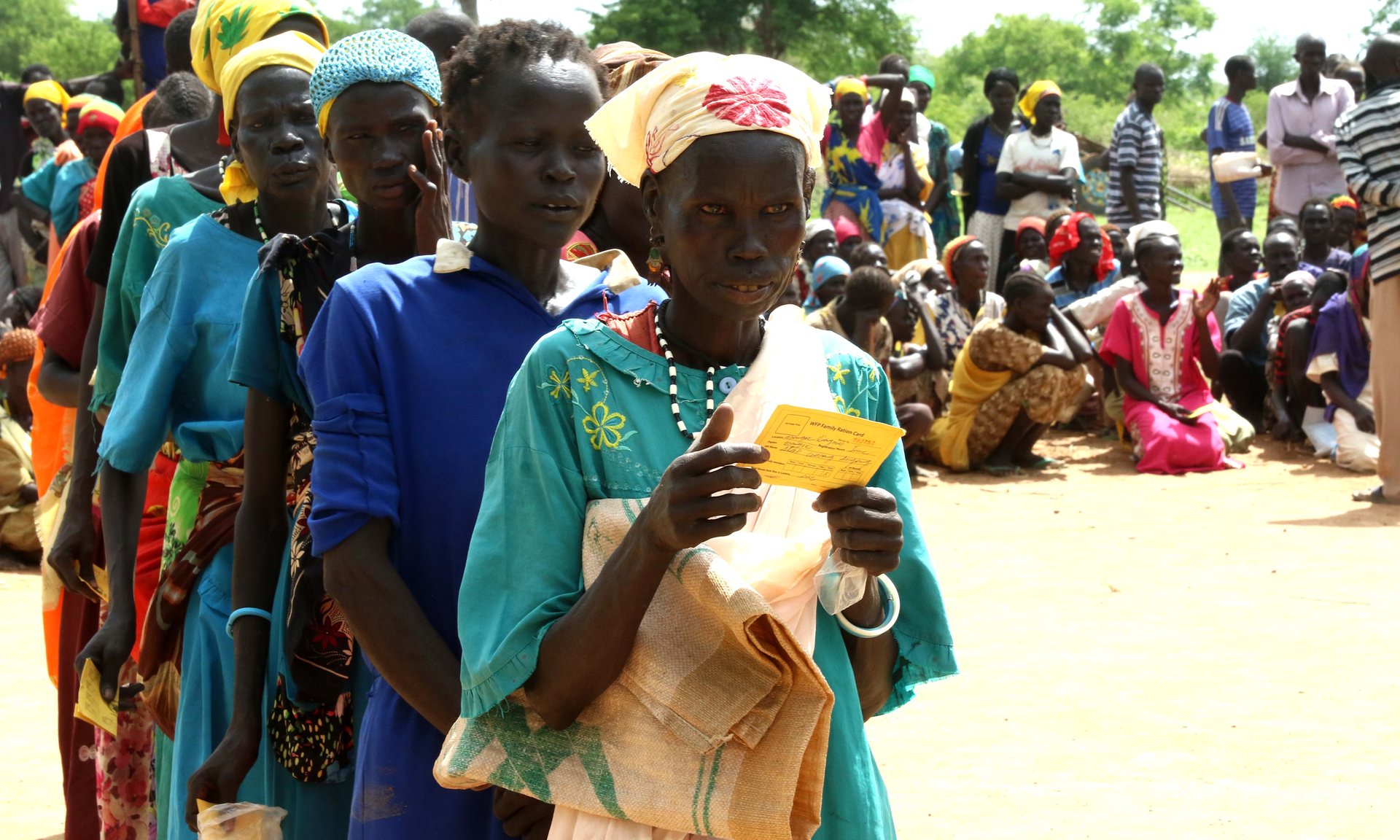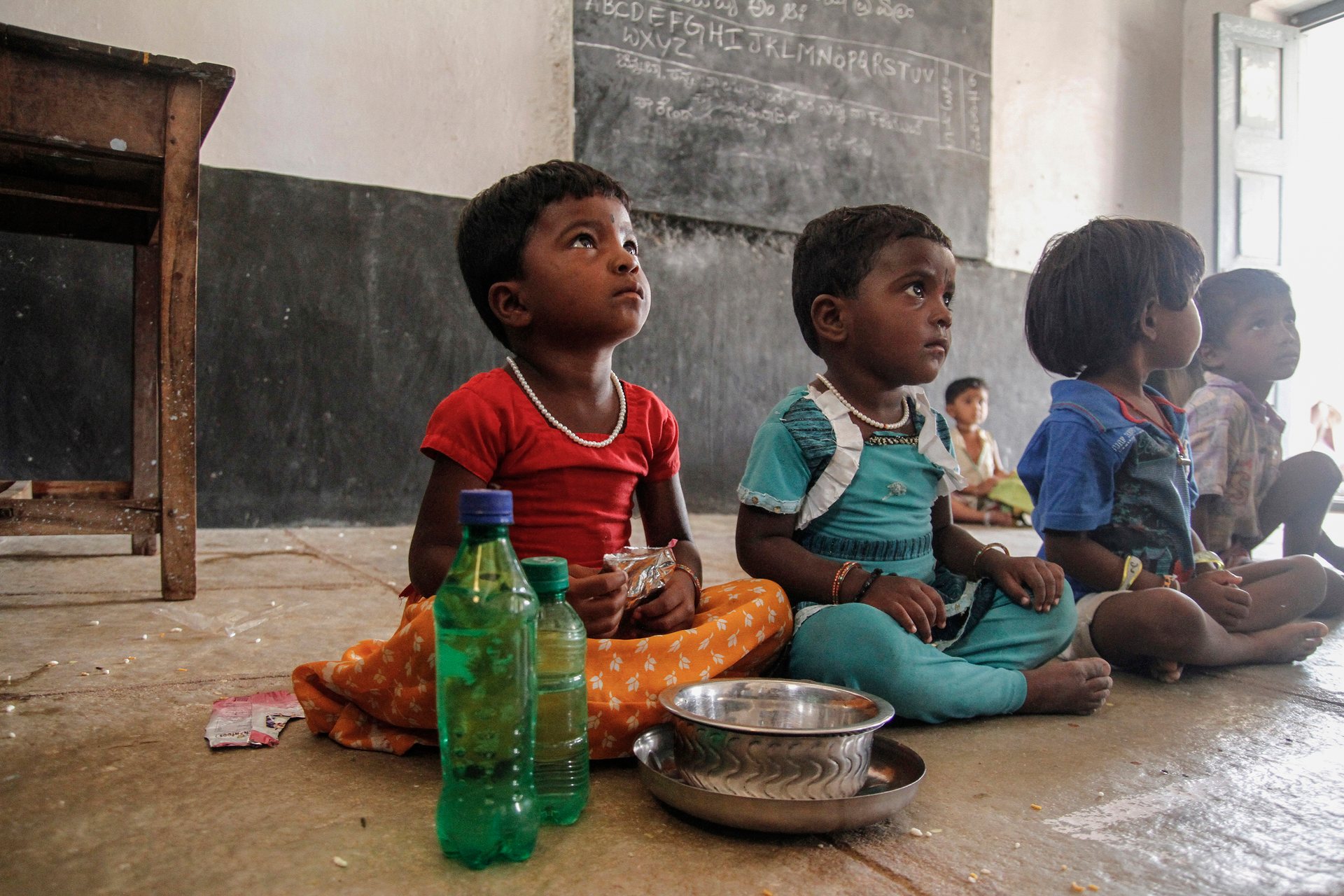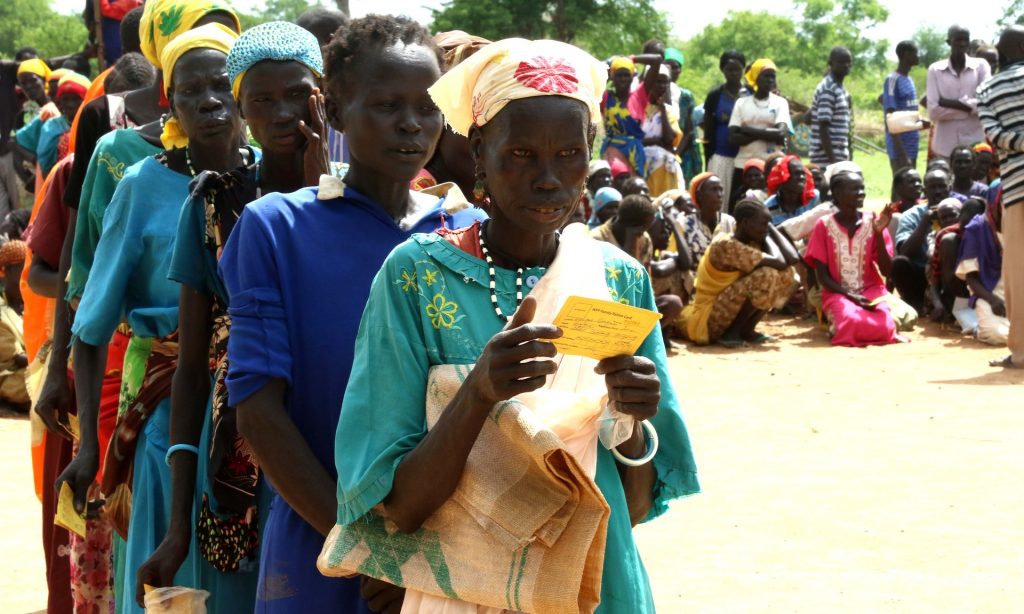One could barely hear the cry of Aisha Alhassan, a seven month old girl who is suffering from Severe Acute Malnutrition (SAM), and the reason is not far-fetched, Aisha’s mother died of severe bleeding a day after she was born, and as such, she never had the taste of breast milk.
She was left with her father’s elder sister, Hassani Tijjani, who is a farmer, to cater for her. According to Tijjani, Aisha was given artificial milk right from the day she was born. With tears dripping down her face, Tijjani told LEADERSHIP that Aisha started developing rashes and looking malnourished when she couldn’t afford her baby milk which is sold for N2200.
“Sometimes, we had to sell all our farm produce, just to buy her milk. When we don’t have anything to sell, we would be forced to give her water. She is seven months now and she is looking like a new born baby,” she lamented.
While, Aisha is down with SAM, due to the fact that her mother died when she was just one day old, Hasana and Husena Abubakar’s mother is sound and healthy, yet this twins are suffering from SAM. According to Abibat Abubakar, she gave birth to her twins at home because it was a Christmas Day and doctors/nurses at the hospital she registered with, had gone for the holidays.

Photograph: Simona Foltyn
Mrs Abubakar who is 20 years old, said, immediately she gave birth, her mother-in-law told her to wash her breast and remove the so called ‘dirty milk’ before breastfeeding her children. She said anytime her mother-in-law is bathing her children, she normally give them water.
On her part, she stopped breastfeeding when her babies were four months old and started giving them artificial milk. According to Mrs Abubakar, it was her neighbor who noticed that her twins, supposed to be bigger than the way they were looking and told her to go to the hospital where she was told, they are suffering from SAM.
She said, “Today is the fourth time I have been coming to Kwali Primary Healthcare Centre (PHC) where my children are being treated of SAM. They are both weighing 5kg each whereas they are 10 months old.”
Aisha, Hassana and Husena are part of the 51 children that are being treated of SAM at Kwali PHC. According to the assistant nutritionist/focal person, Akwali PHC, Jacinta Ugwu, environmental, cultural background and economic barriers, are the main causes why most children are down with SAM in the community.
Ugwu said, “We have up to 51 children with SAM at Kwali PHC, but most of them don’t come anymore. Presently, we have 25 stunted and 15 wasting children that are persistent in their treatments. Since we have community management of acute malnutrition, we give them ready to use therapeutic food, we treat them with antibiotics and some relevant drugs to manage them when they come.
“We always have talks with mothers each time they come to the PHC for antenatal and immunization because right from conception, it is very vital that the pregnant women take in the necessary nutrition that would enable their fetus to grow properly.
“After delivery their babies, we always tell them the right thing which is Infant and Young Child Feeding Practices ( IYCF), we tell them to give their babies only breast milk within 30 minutes to one hour of delivery up to six months, thereafter, they should continue breastfeeding with appropriate complimentary feeding up to 24 months.
“When they get it right at that stage, their children would have gotten all the nutrients they needed to grow properly in all ramification, but if they missed it, the consequences is irreversible.”
Speaking on the complimentary foods, Ugwu said, “Some of the complimentary foods are cereals, vitamin A rich foods, iron rich foods, protein etc. The mother has to combine all these nutrients in one food to give to the baby. They are not expensive. For instance, if you make pap for the baby, you should add soya beans and milk. If you make potatoes, add vegetables and crayfish to it.”
On the challenges they encountered at the PHC, she said, “Most of the women do not come for antenatal, as they preferred to give birth at home, so it is difficult to educate them on the importance of exclusive breastfeeding. It is through antenatal we can detect any defect, but they won’t come.
“Those that manage to come for antenatal, when it is time to give birth, you won’t see them again. Even when it is time for immunization, you won’t see them. The only time you would see them is when the case is very serious. We keep going to their homes to educate them and sensitize them on the need to come for antenatal and immunization.”
Ugwu however pleaded with the federal government to come to their aids. She said, “We are pleading with the government to assist us in the area of providing food for those whose children are malnourished. We only do demonstration for them because the food cannot go round.
“If only government can provide food for us, we will not only demonstrate for them to see, we would also give them food, because most of them cannot even provide food for the children.
“Most of the women kept complaining of transport fare to the PHC. We do, on our parts contribute money and give to them so they can bring their children next week for treatment.
“For cases that are more severe, we do refer them to the nearest general hospital. When we refer them, they find it difficult to stay and complete the treatment. You will hear them complaining that they need to go home to take care of the younger ones they left at home. It is a really big problem, but we believe, with the help of government intervention, things would get better.”
Meanwhile, the project manager, Civil Society-Scaling Up Nutrition In Nigeria (CS-SUNN), Sunday Okoronkwo, who spoke with LEADERSHIP said tackling malnutrition in Nigeria requires a holistic approach, starting from the period of conception, down to the first 1000 days of life.
Okoronkwo said malnutrition is a multi-sectorial issue of serious concern that requires a collective response.
He said the first 1000 days of life is very crucial because if a child is malnourished during that period, immunizing such child is a waste, adding that it could lead to stunting, wasting and underweight later on in life.
According to him, right from conception, the pregnant woman should endeavor to take-in the right food, so that the baby can grow properly in the womb. When the baby is born, he said the health workers need to ensure that the woman breastfeed the baby within 30 minutes to one hour after delivery, so that the colostrum, is being given to the baby, which is the first vaccine a child gets and gives protection against diseases.
Okoronkwo said, “After that, the woman should continue exclusive breastfeeding for six months, thereafter introduce appropriate complimentary foods, while still giving the baby breast milk for two years and beyond.”
As for the government, the project manager said government should prioritize issues around the first1000 days of life, by funding campaigns for exclusive breastfeeding in the first six months of life.
He said, for every N100,000 invested in nutrition, the government will get returns of N2.5 million, adding that it would also enable Nigeria attain the Sustainable Development Goal (SDG) 4, which is quality education because adequate nutrition drives IQ levels.

Photograph: Ronny Sen/WaterAid
Okoronkwo however advised that there is need to train health workers to improve their skills on IYCF and ensure that manufacturers and producers of consumables comply to the minimum standard of food fortification in Nigeria.
Meanwhile, the Federal Ministry of Health and the National Bureau of Statistics, recently, presented the 2018 National Nutrition and Health Survey.
The survey revealed that only 41 percent (comparable to 42 percent in 2015) of the children aged between 6 to 59 months received the vitamin A supplement in the 6 months prior to the survey. Adding that about six in ten Nigerian children do not receive adequate levels of supplementation and are at risk of vitamin A deficiency.
The coverage, the minister said is however, a slight improvement from NNHS 2014 findings that recorded prevalence of 35 percent while also calling for increased awareness and campaign to improve Vitamin A coverage in states and particularly in the North East and North West.
The survey recommended that in accordance World Health WHO/UNICEF recommendations for reducing malnutrition, against the background of limited of limited resources, the most cost effective scenario should be to scale up a subset of the 10 sets of interventions in the highest burden region of the country.
However, in an effort to manage Severe Acute Malnutrition (SAM), the federal government in partnership with UNICEF, during the launched of the survey report, distributed 12 cartons of ‘Ready to Use Therapeutic Food’ (RUTF) to six selected states, with the hope to treat about 88,000 children with (SAM) and save more than 16,000 lives.
Minister of Health, Prof. Isaac Adewole, at the event, in Abuja, said the six states which include Anambra, Bauchi, Bayelsa, Edo, Osun States and FCT were selected based on set criteria and were requested to indicate interest.
“Today, I will be handing over 12,000 cartons of RUTF to each of the states. The FCT will get 5000 cartons. Health workers will also be trained in each of the states to manage SAM. It is my hope that based on the understanding we have with them, the selected states will sustain the service delivery after we have exhausted these stock.
“As funds are made available, we shall continue to scale up efforts to treat SAM cases while strengthening our prevention efforts in Nigeria” said Adewole.

